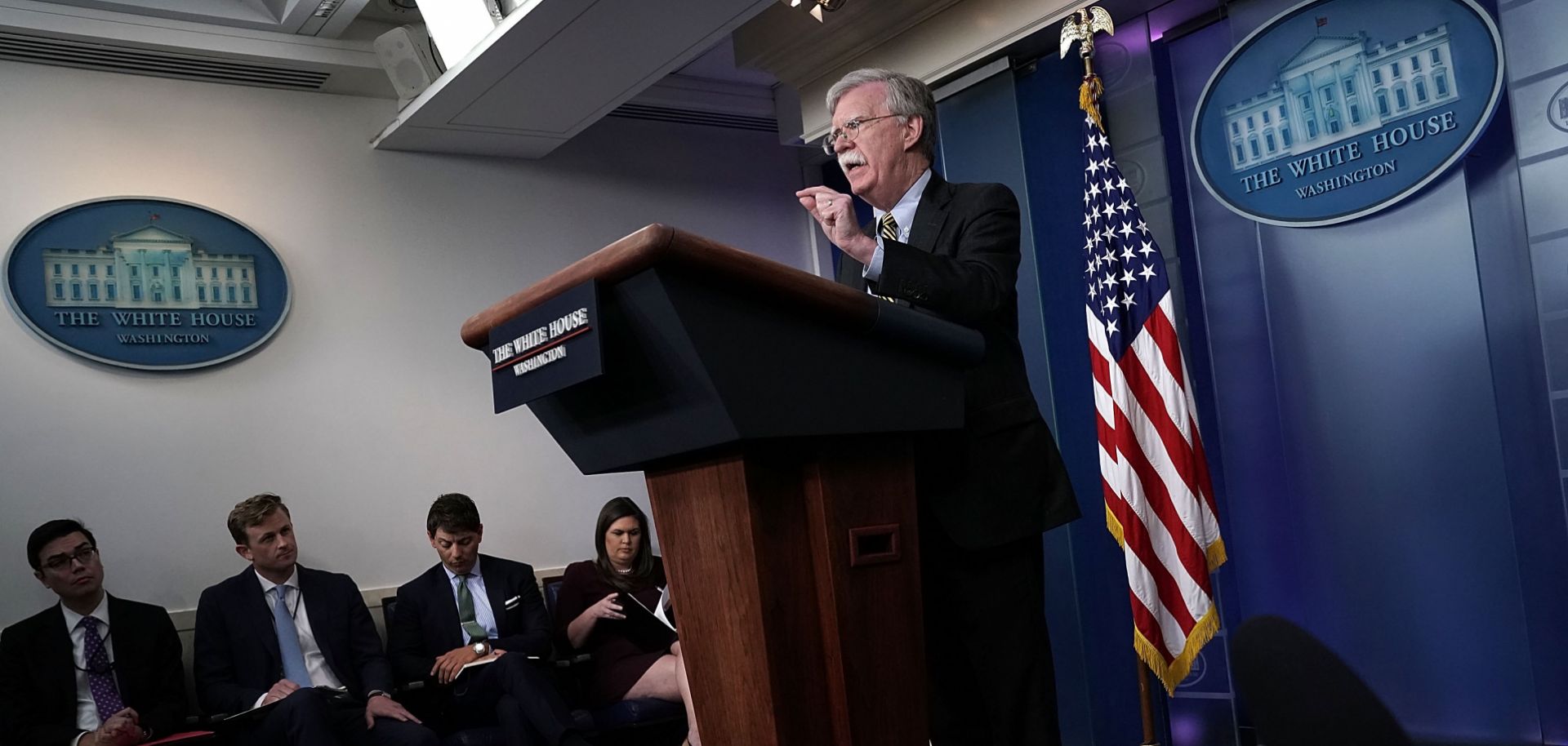ASSESSMENTS
The U.S. Withdrawal From the INF Treaty Is the Next Step in a Global Arms Race
Oct 22, 2018 | 20:44 GMT

U.S. national security adviser John Bolton speaks during a White House news briefing on Oct. 3, 2018. Several factors have pushed the United States to this tipping point on the INF, including the growing power of China, Russia's continuing INF violations and the ascent of ardent arms-control skeptics in the White House like Bolton.
(ALEX WONG/Getty Images)
Highlights
- The end of the INF treaty would again place Europe between Russian and U.S. intermediate-range nuclear missiles.
- Withdrawing from the INF allows the U.S. military to build up a formidable arsenal of missiles to challenge China and Russia.
- The termination of the treaty will galvanize an arms race between the great powers and could threaten the future of the New START arms control agreement.
Subscribe Now
SubscribeAlready have an account?
